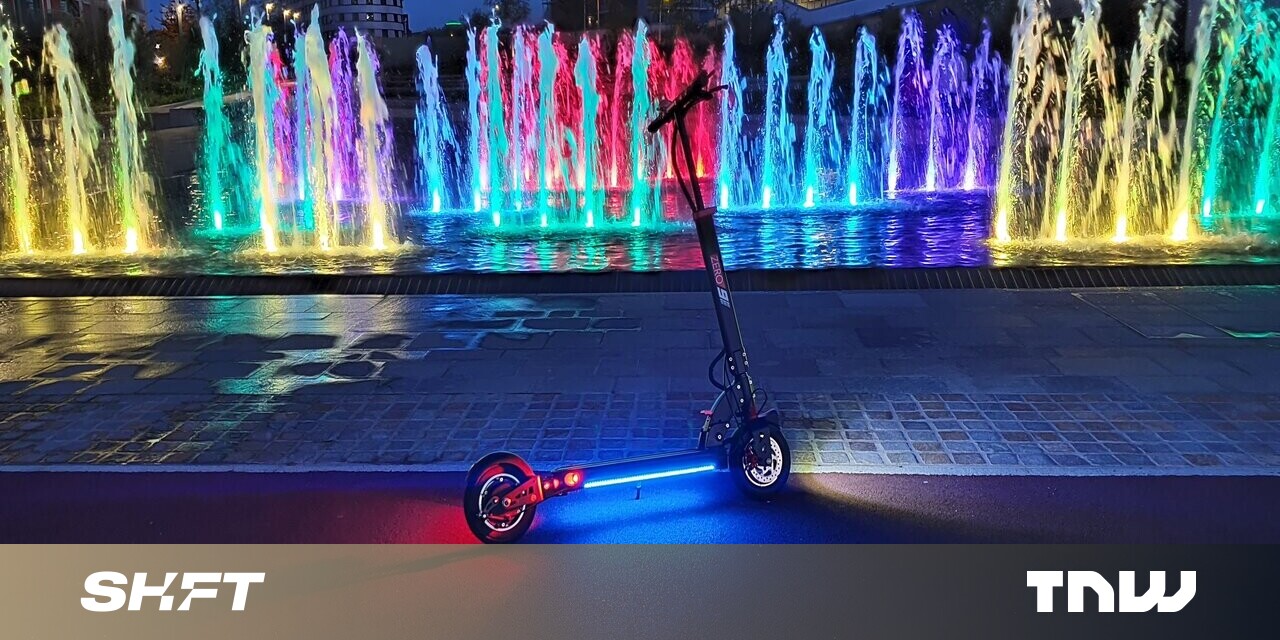#How Illegal escooter use is driving a nail in UK micromobility reform

Table of Contents
“#How Illegal escooter use is driving a nail in UK micromobility reform”
The battle between public and private escooters has meant that their low carbon footprint in the micromobility space has been obscured mainly by police intervention and what some call over-policing.
I wanted to understand the situation more. So I reached out to Dott, who is participating in Transport for London’s (TfL) escooter hire scheme, and also a private escooter retailer, Escootered. But first, let’s take a walk through the legalities of escooters in the UK:
Law and order
In micromobility, escooters are a poster child for when tech rolls out faster than the laws around its use.
In the UK, escooters are covered by the Road Traffic Act (1988) and fall under the category of powered transporters.
z It’s legal to buy, sell, and own escooters. There’s no age limit on ownership. But you can only ride them on private land.
By comparison, rideshare escooters can be ridden on roads and cycle paths and can only be hired by people 18 years or over who own a category Q or P/M driver’s license. For all riders, there are penalties for bad behavior, including a €60 (£50) fine for riding on the footpath, and a €120 (£100) fine and six driving license penalty points for using a mobile phone or riding through a red light.

The problem is that illegal escooter riding on roads, bike paths, and sidewalks is abundant. Many people are using their purchased escooters for commuting, despite the fact that it’s illegal.
I spoke to Ed Wiles, owner of retail business Escootered, who shared:
My general thinking is that escooters are over-policed. And I think Brexit and COVID have had a knock-on effect with the government not introducing new laws which could have legalized private escooters.
He suggested
I think that they’ve actually done it the wrong way around. If you’re a private owner, you’re much more likely to wear a helmet. Also, you’re much more likely to test out the scooter to avoid injury before you ride it.
Notably, it’s not illegal to ride an escooter without a helmet. However, rideshare companies like Dott offer incentives to riders. These include bonus points towards free rides for those that take a selfie wearing their helmet.
Wiles also raises an important point: the risk of injury.
How common are escooter injuries?
There’s plenty in the press about injuries caused by riding an escooter, and the head of the Metropolitan road and transport police has not helped their reputation by branding them as “death traps.”
Escooter crashes shot up almost 2,800% in London in the first half of 2021 compared to the entirety of 2018, according to Met Police data.
There were 258 collisions in the capital in the first six months of last year. In 2018 there were 9.
It’s unclear exactly how many of the injured riders are private owners riding illegally or rideshare participants. There are also no details on whether the “collisions” were people falling off their escooters or colliding with pedestrians or road users.
We do know that those injured are most like to be inexperienced riders. A 2018 report into escooter injuries resulting in hospital or emergency service treatment found that two-thirds (65%) of those injured had ridden an escooter zero to nine times).

According to Dott, data revealed that 33% of accidents happen within the first three rides. In response, the company limits the engine speed for these first few trips. Dott says this helps riders get comfortable with the scooters and reduces the likelihood of accidents.
Dott also requires users to complete a training course via its app.
The challenge of policing and curbing bad rider behavior
It’s relatively easy for rideshare companies to control user behavior by slowing down dangerous riders and stopping escooters from moving when ridden on the sidewalk. Such actions are not possible with privately-owned escooters.
Further, according to Wiles, conviction rates against illegal owners vary according to location. Boroughs outside London are more likely to give verbal warnings to offenders, for example. Officers in London seized 3,637 privately-owned e-scooters in total between January and November 2021.
Research by VICE found Black teenagers are overrepresented in these seizures, suggesting it was part of a bigger problem of racial discrimination and over-policing.
Earlier this month, a private escooter rider sought compensation after suffering serious injuries when he was overtaken by a London bus while riding his escooter illegally on the road. His lawyer told The Times:
We hope this case will help clarify the legal position for those injured in escooter accidents where the privately-owned escooter is ridden on a public road.
But really, we urgently need new legislation, and we’re calling on the government to implement laws to make e-scooters safer for riders and other road users and to enable injured people to access compensation.
Private escooters got another blow in December
In December 2021, TfL banned private e-scooters on its network after one burst into flames (although they can still travel on overground trains). According to Wiles:
Part of the problem is that these escooters may be imitation Xiami or Segways. People purchase these from Chinese retailers, and they do not have the same safety standards or batteries as the original brands.

At present, the legalization of escooter on UK roads and bike lanes is up in the air. Rideshare trails have expanded to 34 areas of England. They were originally due to last 12 months but are now extended to November 2022.
Until the UK Government’s rideshare escooter trial concludes, it’s unlikely we’ll see any indication of legal reform around escooter use. Rideshare companies are working hard in their communities to ensure rider safety (and those surrounding them). Regardless, I’m not sure private escooters will collectively suddenly town the line. Attempts to curtail private owners riding illegally show no sign of succeeding. Further, every accident, collision, or impounding only serves to damage their cause.
If you liked the article, do not forget to share it with your friends. Follow us on Google News too, click on the star and choose us from your favorites.
For forums sites go to Forum.BuradaBiliyorum.Com
If you want to read more like this article, you can visit our Technology category.




